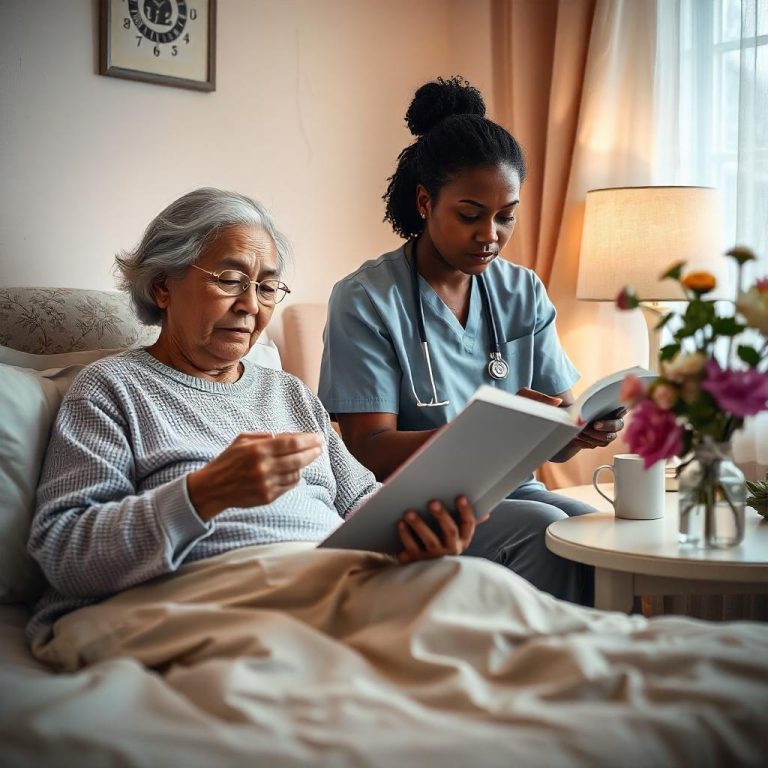As people age, they often experience a decline in their physical abilities and health, making it challenging to manage daily activities. For elderly patients, home health care provides a crucial solution that allows them to receive professional medical care in the comfort of their own homes. Home health care is an essential service that ensures seniors maintain their independence, receive necessary medical attention, and improve their overall quality of life.
What is Home Health Care for Elderly Patients?
Home health care for elderly patients involves a wide range of medical and non-medical services provided at home. It is tailored to meet the unique needs of seniors, offering both short-term and long-term assistance. These services may include personal care, medical treatment, physical therapy, and assistance with daily activities. Home health care helps elderly individuals recover from illnesses, manage chronic conditions, or simply live more comfortably as they age.
Types of Home Health Services for Elderly Patients
- Skilled Nursing Care
- Medical supervision: Skilled nurses provide medical care and supervision for elderly patients who require professional care. This may include administering medications, monitoring vital signs, wound care, and managing chronic conditions like diabetes, hypertension, or heart disease.
- Post-surgery care: After surgery or hospitalization, skilled nurses help with recovery by providing wound care, monitoring for complications, and ensuring that recovery progresses smoothly.
- Physical Therapy
- Rehabilitation: Physical therapy is often a key part of elderly home health care, particularly for seniors recovering from surgery, injury, or illness. Therapists work with elderly patients to improve mobility, strength, and balance, helping them regain independence and reduce the risk of falls.
- Chronic condition management: Seniors with conditions such as arthritis, osteoporosis, or stroke can benefit from physical therapy to alleviate pain and maintain mobility.
- Occupational Therapy
- Assisting with daily tasks: Occupational therapists help elderly patients with daily activities like dressing, cooking, bathing, and grooming. They teach patients adaptive techniques and use assistive devices to make these tasks easier and safer.
- Home modifications: Occupational therapists can recommend home modifications to reduce fall risks, such as installing grab bars, ramps, or wheelchair-accessible pathways.
- Speech Therapy
- Speech and language rehabilitation: Speech therapists assist elderly patients who have experienced strokes, neurological disorders, or cognitive decline that affect their ability to communicate. They work on improving speech, language comprehension, and swallowing to ensure seniors can eat safely and express themselves clearly.
- Personal Care Assistance
- Activities of daily living (ADLs): Home health aides assist elderly patients with daily activities such as bathing, dressing, grooming, toileting, and eating. These services help seniors maintain their dignity and comfort, particularly if they have mobility challenges or cognitive impairments.
- Companionship: In addition to personal care, aides often provide companionship, reducing feelings of loneliness and isolation. They may also assist with light housekeeping, meal preparation, and errands.
- Medication Management
- Monitoring medication schedules: Elderly patients who take multiple medications may benefit from home health services that ensure they take their medications on time and in the correct doses. Nurses or caregivers help with organizing medications, providing reminders, and ensuring the correct administration of prescriptions.
- Preventing medication errors: By working with a home health care team, the risk of medication errors is minimized, improving health outcomes for elderly patients.
- Palliative and Hospice Care
- Comfort care: For elderly patients facing a serious illness or nearing the end of life, palliative and hospice care focuses on providing comfort and alleviating pain rather than curative treatments. Hospice care provides physical, emotional, and spiritual support to both the patient and their family during this challenging time.
- End-of-life support: Hospice teams include doctors, nurses, counselors, and chaplains who help manage symptoms and provide emotional support for patients and their families.
Benefits of Home Health Care for Elderly Patients
- Personalized Care
Home health care allows for individualized, one-on-one attention. Care plans are tailored to meet the specific needs of the elderly patient, focusing on their physical, emotional, and social well-being. This customized approach enhances the quality of care and promotes better outcomes. - Comfort and Familiarity
Many elderly patients find comfort in receiving care at home rather than in a hospital or nursing facility. The home environment is familiar and less stressful, which can positively impact their mental and emotional health. They can also remain close to family and friends, improving their social connections and overall well-being. - Independence and Autonomy
Home health care empowers elderly patients to maintain a degree of independence while receiving necessary care. Seniors can stay in their own homes, perform familiar routines, and engage in activities they enjoy, all while being supported by skilled caregivers and health professionals. - Cost-Effectiveness
Home health care is often more affordable than long-term care facilities or hospitalization, particularly for elderly patients with chronic conditions or who require long-term assistance. It allows patients to receive high-quality care without the high costs associated with nursing homes or hospitals. - Reduced Risk of Hospital Readmission
Skilled home health services can help reduce the risk of hospital readmission by ensuring that elderly patients follow their care plan, take medications correctly, and attend follow-up appointments. Home health nurses monitor the patient’s recovery and address potential issues before they require emergency treatment. - Flexibility and Convenience
Home health services offer flexibility in terms of scheduling. Depending on the patient’s needs, services can be arranged for specific hours, days, or even around the clock. This flexibility makes it easier to adjust the level of care as the patient’s condition changes.
How to Find Home Health Care for Elderly Patients
- Consult Healthcare Providers
- Your primary care doctor, geriatrician, or specialist can help guide you toward the appropriate home health services. They may provide referrals to home health agencies or individual caregivers based on the patient’s specific medical needs.
- Research Home Health Agencies
- Many agencies specialize in providing home health care for elderly patients. When researching agencies, make sure they are licensed and accredited. Look for agencies that offer the specific services needed, such as skilled nursing, physical therapy, or personal care assistance.
- Check for Insurance Coverage
- Medicare, Medicaid, and some private insurance plans cover home health care services. Contact your insurance provider to find out what services are covered and if you need a referral to qualify for coverage.
- Ask for Recommendations
- Reach out to family members, friends, or local senior support organizations for recommendations on home health services. Word-of-mouth referrals can help you find reliable and trusted providers.
- Review Caregiver Qualifications
- When selecting home health care providers, make sure that caregivers are qualified and experienced. Ask about their credentials, training, and any background checks that have been completed. This ensures the caregiver can provide the highest level of care.






